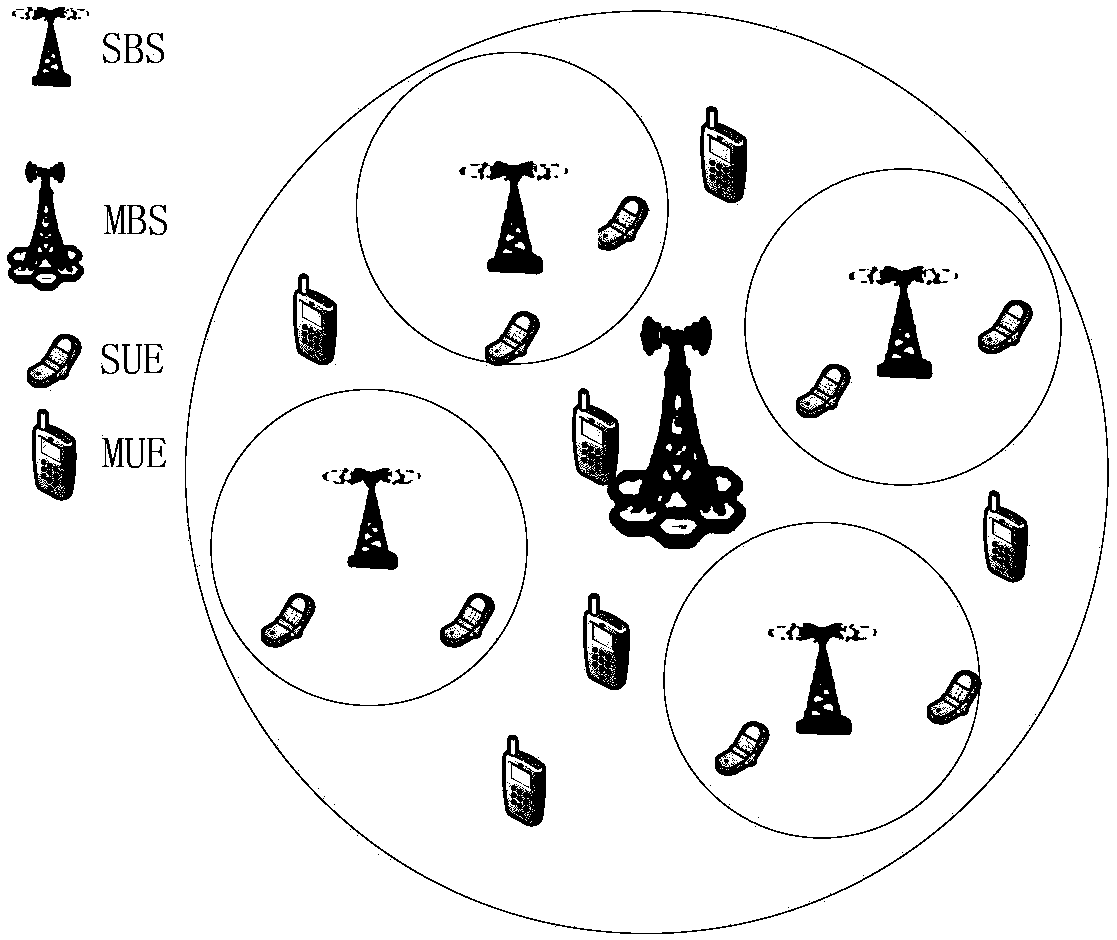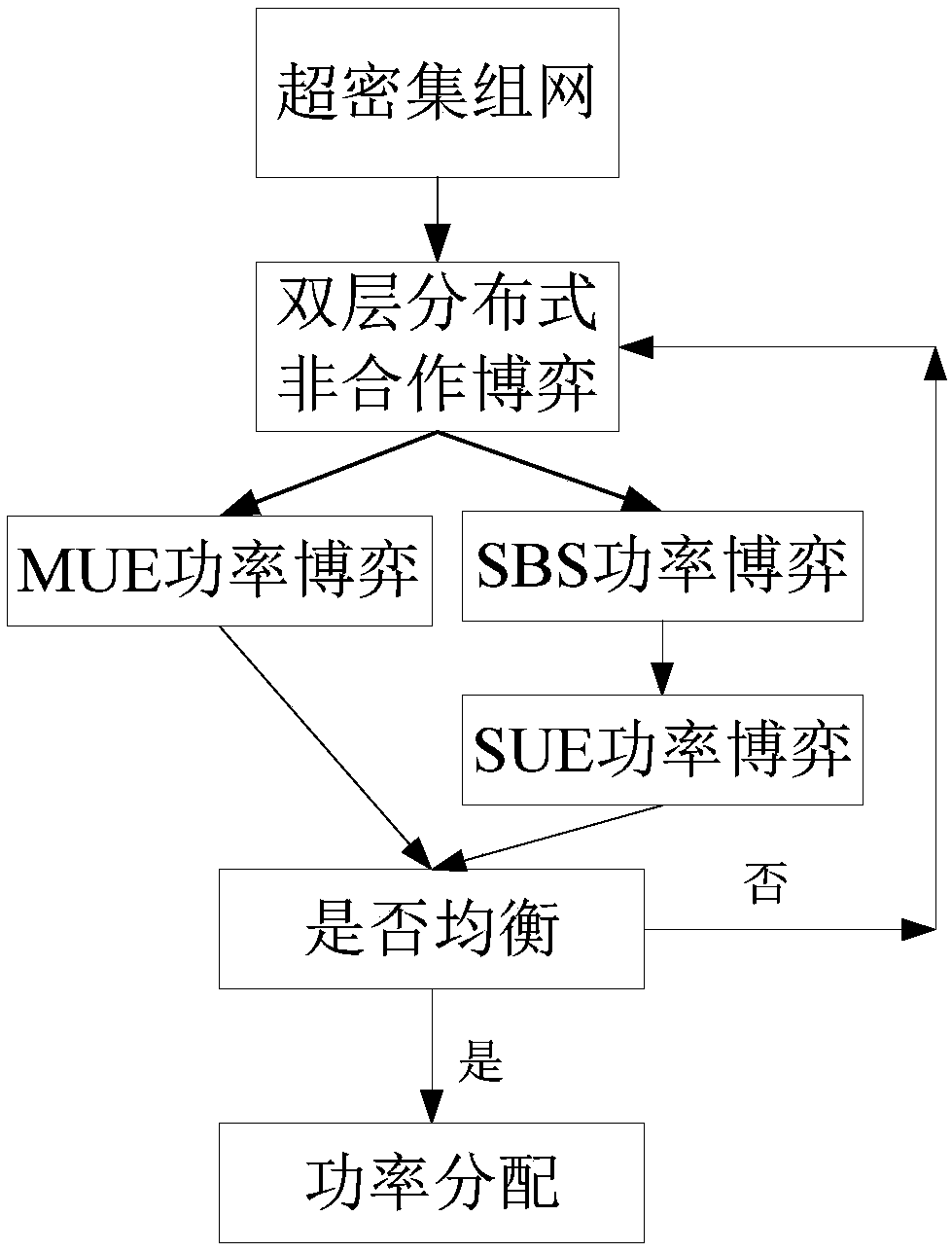Power allocation method based on double-layer non-cooperative game theory in ultra dense network and wireless network power allocation modeling method in ultra dense network
A modeling method, ultra-intensive technology, applied to the modeling of power allocation under ultra-dense networking, based on the field of power allocation model of double-layer non-cooperative game theory, can solve problems such as interference
- Summary
- Abstract
- Description
- Claims
- Application Information
AI Technical Summary
Problems solved by technology
Method used
Image
Examples
Embodiment Construction
[0076] Specific embodiments of the present invention are described in detail below, but it should be understood that the protection scope of the present invention is not limited by the specific embodiments.
[0077] Unless expressly stated otherwise, throughout the specification and claims, the term "comprise" or variations thereof such as "includes" or "includes" and the like will be understood to include the stated elements or constituents, and not Other elements or other components are not excluded.
[0078] The present invention studies how to allocate power in a wireless network under an ultra-dense networking framework. The power allocation of the wireless network involved in this article mainly refers to the allocation of the downlink power of the macro base station in the system to each micro base station and macro cell within its coverage area according to certain rules under the network architecture of ultra-dense networking. users, and each micro base station alloc...
PUM
 Login to View More
Login to View More Abstract
Description
Claims
Application Information
 Login to View More
Login to View More - R&D
- Intellectual Property
- Life Sciences
- Materials
- Tech Scout
- Unparalleled Data Quality
- Higher Quality Content
- 60% Fewer Hallucinations
Browse by: Latest US Patents, China's latest patents, Technical Efficacy Thesaurus, Application Domain, Technology Topic, Popular Technical Reports.
© 2025 PatSnap. All rights reserved.Legal|Privacy policy|Modern Slavery Act Transparency Statement|Sitemap|About US| Contact US: help@patsnap.com



